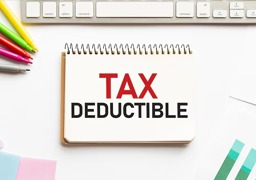# taxsaving
12 posts in `taxsaving` tag
Maximize Your 80C Deductions with Tax-Saving Fixed Deposits
This blog post provides a comprehensive overview of tax-saving fixed deposits (FDs) and how they can help you maximize your income tax deductions under Section 80C. It covers the key features of tax-saving FDs, including the lock-in period, deduction limit, and taxation of interest.
Demystifying Section 197A of the Income Tax Act: Exemption from TDS Deduction for Low-Income Individuals
Section 197A of the Income Tax Act provides relief to individuals with incomes below the taxable limit by allowing them to submit Form 15G or Form 15H to avoid TDS deductions. This blog explains the eligibility criteria, benefits, and the process of submitting these forms, along with the potential consequences of providing incorrect information.
Tax Benefits for Homeowners: Exploring Section 24 and 80EE
Homeownership comes with substantial financial responsibilities, but the Indian tax system offers relief through Sections 24 and 80EE of the Income Tax Act. Section 24 provides deductions on home loan interest, with specific benefits for self-occupied and let-out properties. First-time home buyers can enjoy additional savings under Section 80EE, which offers a further deduction on home loan interest. This blog delves into the provisions, eligibility criteria, and strategic benefits of these sections, helping homeowners maximize their tax savings and make informed financial decisions.

A Comprehensive Guide to Form 12BB: Claiming Tax Benefits and Rebates Made Easy
This blog post provides a comprehensive guide to Form 12BB, a statement of claims by an employee for deduction of tax. It covers the importance of Form 12BB, what to declare, and how to fill it out correctly.

Comparing Old vs. New Tax Regimes in India for Income Above 15 Lakhs
Choosing between the old and new tax regimes in India can significantly impact your tax liability, especially for incomes above ₹15 lakhs. This blog delves into the advantages and disadvantages of both regimes, providing a detailed comparison to help you make an informed decision. Learn about available deductions, tax rates, and scenarios to see which regime offers the most tax savings for your income level.

Tax Returns & Forms for Salaried Individuals - AY 2024-25
This comprehensive guide provides salaried individuals with insights into tax returns and forms for Assessment Year 2024-25. Learn about essential documents like Form 16, filing due dates, and tax-saving opportunities to streamline your tax filing process.

Guide to Filing Income Tax Return (ITR) for New Taxpayers in India
This blog post provides a comprehensive guide for first-time taxpayers in India, covering the basics of ITR filing, types of ITR forms, documents required, and a step-by-step guide to filing taxes online and offline.

Maximize Deductions: Section 80C for AY 2024-2025
As the Assessment Year (AY) 2024-2025 approaches, taxpayers can reduce their taxable income by maximizing deductions under Section 80C of the Income Tax Act. This guide covers various eligible investments and expenditures, including life insurance premiums, PPF, EPF, NSC, ELSS, home loan principal repayment, SSY, SCSS, tax-saving FDs, tuition fees, and infrastructure bonds. It also provides tips and strategies for effective tax planning to help you optimize your tax savings.

Don't Miss Out on Savings and Compliance: Top 8 Common Mistakes to Avoid When Filing Income Tax Returns for Small Businesses
Filing income tax returns for small businesses can be a daunting task, with numerous regulations and intricacies that can lead to costly penalties or missed savings opportunities. In this comprehensive guide, we will explore the top 8 common mistakes to avoid when filing income tax returns for small businesses, helping you ensure compliance and maximize savings. From maintaining accurate records and classifying employees correctly to claiming all eligible deductions and filing on time, our guide covers everything you need to know to make the tax filing process smoother and less stressful.

A Comprehensive Guide to National Pension System (NPS) for Retirement Planning
National Pension System (NPS) is a tax-saving instrument designed for retirement planning. This blog post provides a comprehensive understanding of NPS, including its types, workings, and eligibility criteria.

ELSS vs PPF: Which Tax-Saving Option is Better?
The article "ELSS vs PPF: Which Tax-Saving Option is Better?" compares two popular tax-saving investments in India: Equity Linked Savings Scheme (ELSS) and Public Provident Fund (PPF). ELSS invests in equity markets, offers tax benefits under Section 80C, has a three-year lock-in period, and potentially higher returns subject to market risks. Returns above Rs. 1 lakh are taxed at 10%.
PPF, a government-backed savings scheme, also offers tax benefits under Section 80C. It has a fixed interest rate of 7.1% per annum, a 15-year lock-in period, and tax-free interest earnings.
The choice between ELSS and PPF depends on an investor's goals, risk tolerance, and investment horizon. ELSS suits those willing to accept higher risk for potentially higher returns, while PPF is ideal for those seeking low-risk, fixed returns. The article provides a concise comparison to help investors decide based on their preferences.

Maximizing Tax Savings: A Complete Guide to Section 80C Deductions
Discover how to maximize your tax savings with Section 80C of the Income Tax Act. This guide covers eligible investments like PPF, EPF, NSC, and tax-saving fixed deposits. Learn strategies to utilize the ₹1.5 lakh deduction limit, understand subsections 80CCC and 80CCD, and plan your finances for long-term benefits. Optimize your tax-saving strategies with this in-depth exploration of Section 80C deductions.
